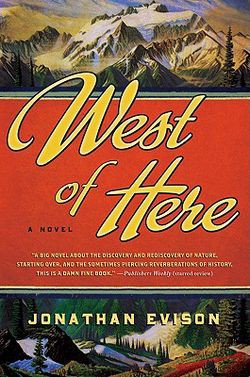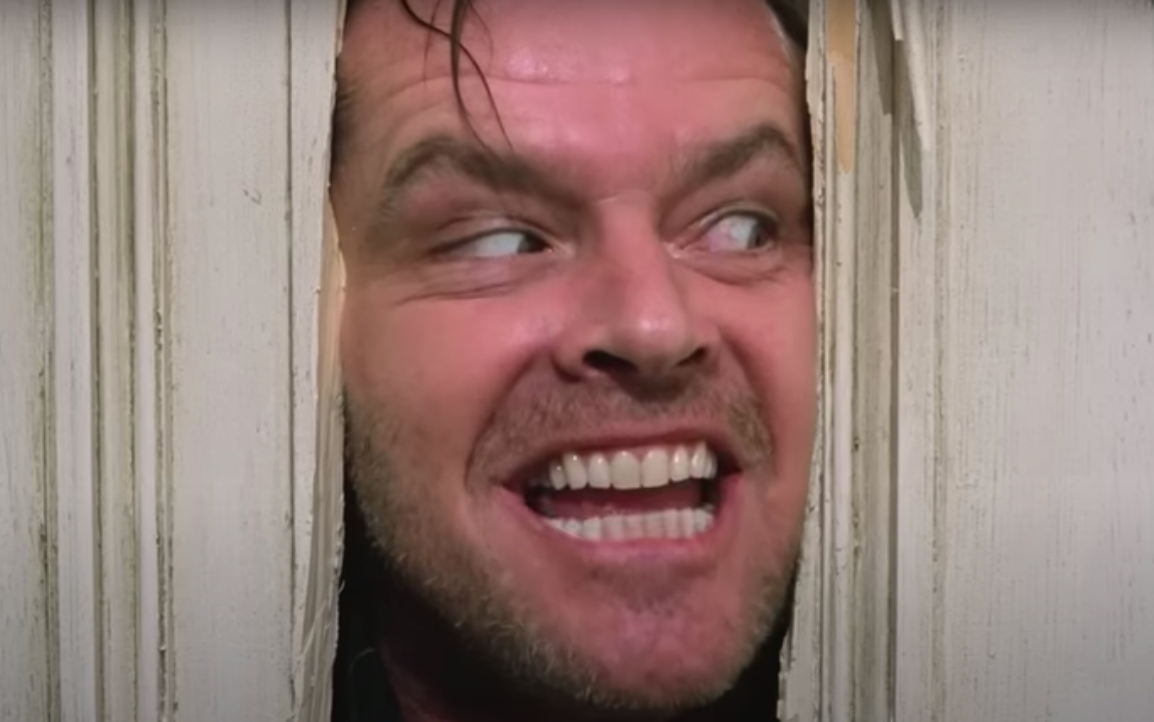Books & Culture
WEST OF HERE by Jonathan Evison


West of Here
Jonathan Evison
Algonquin Books
496 pages/$24.95
Whenever I hear the words “Manifest Destiny,” I instinctively picture John Gast’s American Progress, a late nineteenth-century painting whose image is still seared into my mind courtesy of my junior year American history textbook. In the painting, Columbia leads civilization westward across a generic Western landscape, dropping telegraph wire in her wake as terrified Native American savages flee from her visage. In hindsight, the arrogance, racism and sheer mendacity of this justification for American expansion seems obvious, but the question remains: If not Columbia herself, what force drives this nation forward? In West of Here, Jonathan Evison becomes the latest author to tackle this peculiar facet of the American psyche.
Any author setting his sights on Manifest Destiny as a topic must contend with the long shadow cast by American masterpieces like Cormac McCarthy’s Blood Meridian or Melville’s Moby-Dick, nihilistic novels that seeks to explain (and perhaps, understand) the quintessentially American violation of empty space through acts of violence and obsession. There’s no way to improve on this novels, and, to his credit, Evison doesn’t try. Instead, he offers a gentler — though no less epic — entry point into how the West was won. The novel begins in the sublime tones of Larry McMurty, but soon opens into a Steinbeckian opus full of wonder, compassion and common nobility; it’s a severe rejoinder for a genre often obsessed with its own bleak and Gnostic themes.
Evison’s key innovation is to structure West of Here as a conversation between 1890 and 1996. Running parallel to a nineteenth-century narrative about the adventurers, explorers, businessmen and utopianists who founded the Pacific Northeastern town of Port Bonita on the eve of Washington’s statehood is a second storyline about the descendents of these founders, men and women who are, as it turns out, not all that dissimilar from their ancestors. Part of the novel’s fun lies in teasing out the pairings between the two historical eras: who is the modern-day answer to the explorer and who is the modern-day industrialist? (That Evison resists simple one-to-one correlations between characters only makes the process richer.) But looming over all of these lives, a perpetual presence in the novel, is the town of Porta Bonita itself. Since the novel lacks a central character, Porta Bonita assumes the central role in West of Here. As such, the novel requires a considerable investment before it pays off; the first section can feel like a war of incongruous characters and tones until the reader settles in and the novel’s epic scope becomes clear.
As an epic of American expansion, West of Here can’t help but tread familiar ground, though it’s never without subverting or complicating the themes it’s working within. When Dave Krig, an affable modern-day loser, “turned to the wind and endeavored to see the lights of Porta Bonita as though for the first time, presuming by the sheer force of will to see in the distant winking lights an unfamiliar city, a whole new set of possibilities,” it summons the image of Jay Gatsby, another affable loser who had his own obsession with standing outside and staring at distant lights. But where Gatsby uses his light as a guide through the darkness, Krig finds no such solace. Dismayed, Krig reports that no matter how hard he looks, “Portan Bonita was still Porta Bonita.” For Evison’s characters, even the promise of the American Dream can seem remote.
The settlers of the Porta Bonita hoped to find something immense and blank on the American fronteir, something that could contain their myriad passions and ambitions. But in the process of taming the wilderness, they made it small for themselves. They carved out the land, allotted the resources, gave names to all the mysteries they lived amongst. The mighty Elwha, a river of near-mythic proportions, is dammed and redirected, its power used to drive Porta Bonita into the twentieth century. Generations later, as the Thornburgh dam is slowly dismantled, the ancestors of these settlers long for the sort of freedom that will make them small again, the sort of freedom that will once again make them figures against a backdrop of progress, destiny and history. No matter the year, the people of Porta Bonita long to become things they can’t even fully imagine.
But for every person who succeeds in West of Here, many more fail. They are undone by their anxieties, their pasts, their families, their jobs and — most starkly — their need to love and be loved. Lives are squandered by utter mundanity and stark tragedy alike. And yet, Evison still holds out hope. As it turns out, the West was never wholly won. We mapped it, named it, and tamed it, but it persists as a land utterly foreign to use, a wilderness haunted by monsters, spirits and natural wonder that resist explanation. And in the face of this mystery and despair, West of Here consistently finds meaning in community. Although their common history chokes and stifles the men and women of Porta Bonita, Evison shows time and time again that they can’t make it by themselves. We can all leave town, make a fresh start, and reinvent ourselves but no matter what, we are all in this together, pushing “onward” — to borrow the word tattooed on one character’s knuckles — into an uncertain future.
–Stephen Aubrey is a writer and amateur teratologist. He can be found here.









